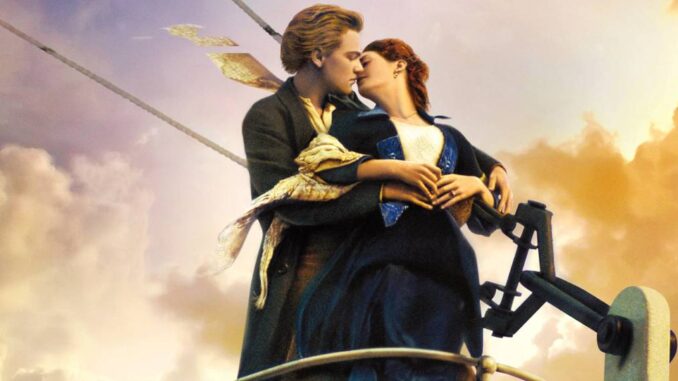
Few films are as indelibly etched into the global consciousness as James Cameron’s Titanic. It is a colossus of cinema, a blend of historical spectacle, technological marvel, and a love story that swept the world. For many, its initial viewing was an emotional baptism, a grand narrative of forbidden romance, class conflict, and tragic heroism. We cheered for Jack, wept for Rose, and recoiled from the icy grasp of the North Atlantic. Yet, as with all great art, Titanic possesses layers that only reveal themselves upon subsequent, more mature viewings. For me, a second look at the film profoundly reshaped my understanding of one particular character, transforming them from a one-dimensional antagonist into a figure of profound, if misguided, tragedy: Rose DeWitt Bukater’s mother, Ruth DeWitt Bukater.
On first watch, especially as a younger viewer, Ruth was the embodiment of everything wrong with the rigid class system Rose so desperately wanted to escape. She was the architect of Rose’s gilded cage, the cold, calculating matriarch who saw her daughter as little more than a pawn in a desperate financial game. Every pronouncement from Ruth seemed to emanate from a place of icy disdain for anything outside her narrow aristocratic world. Her infamous line, "This ship is a slave ship, taking us to America in chains… Only the chains are gold," was delivered with a chilling certainty, yet she was the one actively forging those very chains. Her dismissive glances at Jack, her relentless pressure on Rose to marry Cal, her constant reminders of their family’s fading fortune – all painted her as a quintessential villain, an unyielding force of aristocratic snobbery determined to sacrifice her daughter's happiness for social standing. My initial takeaway was simple: Ruth was the enemy of love, freedom, and all that was good.
However, with time, a deeper understanding of historical context, and perhaps a touch more life experience, a second look at Titanic reframed Ruth's character entirely. She was no longer just the cruel mother; she was a woman utterly disempowered, a prisoner of the very system she upheld. In 1912, for a woman of her social standing, financial independence was a mirage. Widowed or abandoned, a woman like Ruth faced an abyss of social ruin and destitution if her family's wealth evaporated. Her options were brutally limited: find a rich husband for her daughter, or face the ignominy of poverty and social ostracism.
This realization cast her actions in a new, more sympathetic light. Her "villainy" was not born of malice, but of a desperate, fear-driven need for survival. When she uttered the line about the "gold chains," it wasn't a hypocritical statement; it was a testament to her own understanding of her captivity. She knew the price of their station, because she lived it. Her attempts to force Rose into the marriage with Cal were, in her mind, the only way to secure a future for both of them – a future where they wouldn't fall from grace into the squalor she so deeply feared. The Keldys were not just an opportunity for Rose; they were Ruth’s last, best hope of maintaining their very existence within the only world she knew.
Consider her moments of vulnerability on the sinking ship. While Rose and Jack are experiencing their grand romance, Ruth is panicking, desperate to secure a spot on a lifeboat, clinging to the remnants of her dignity and her daughter's "future." Her decision to board a lifeboat, leaving Rose behind (albeit because Rose chose to stay), was not a heartless abandonment in her eyes, but a logical, if agonizing, step towards potential survival. She was doing what she believed was necessary, the only thing she knew how to do, to preserve what little they had left. Her class anxiety, which seemed so petty and cruel at first, was revealed as a raw, existential dread of a woman facing total ruin with no safety net.
This isn't to say Ruth's actions were right, or that her methods weren't emotionally abusive. She was rigid, often cold, and certainly failed to understand her daughter's spirit. But her character became a poignant illustration of the limitations placed upon women in that era, even those at the top of the social hierarchy. She was a victim of her circumstances, just as Rose initially was. The tragedy of Ruth DeWitt Bukater is that she could not see beyond the "golden chains" because they were, for her, the only visible means of staying afloat. Her life was defined by the relentless pursuit of security within a system that offered her no true agency.
A second look at Ruth DeWitt Bukater transformed her from a cardboard cutout antagonist into a layered portrait of a woman making terrible, limited choices born of desperate fear. It changed everything because it shifted my perspective from simple judgment to complex understanding. It taught me that sometimes, the most seemingly villainous characters are merely products of their time and circumstances, fighting their own desperate battles for survival, albeit in ways that may ultimately cause harm. Titanic, I realized, was not just a story of love and loss, but a nuanced examination of an entire societal structure, and Ruth was its most poignant, often misunderstood, casualty.